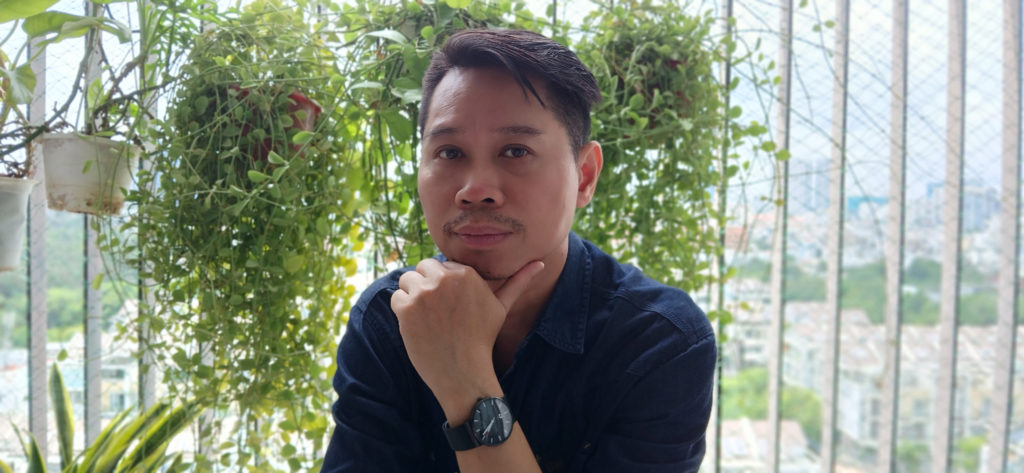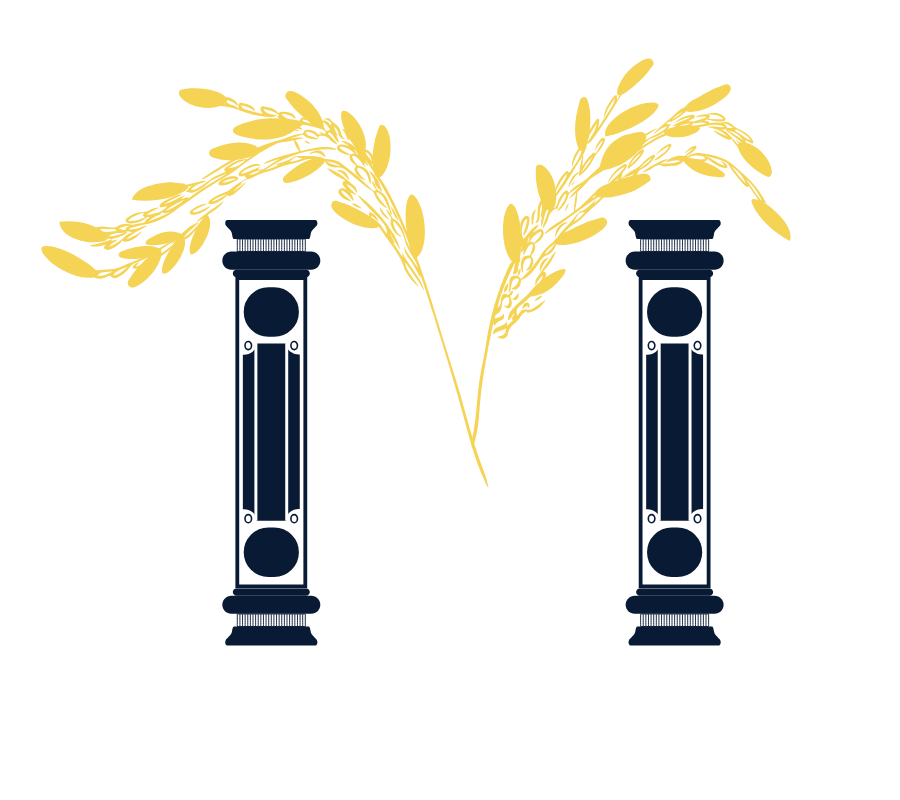“Sweet and bitter, black and pink, neither good nor bad”: A conversation between Vũ Đình Giang and Khải Q. Nguyễn

Originally published on ZZZ Review (currently on hiatus), October 2020, translated from the Vietnamese by Anh Thư Trương Nguyễn. (This interview first appeared in a slightly different form on ZZZ Review.) Vũ Đình Giang was born in 1976 in Tiền Giang in the Mekong Delta. He studied graphic design at Hồ Chí Minh City University of Architecture. His work has been recognised by Writers in their 20s’ Contest, one of Vietnam’s oldest and most reputable prizes for emerging literary talents. Parallels is Vũ Đình Giang’s début novel, first published in 2007 and re-printed in 2011. Translated into French by Yves Bouillé, Parallels was published in 2014 by Éditions Riveneuve in collaboration with the National Institute of Oriental Languages and Cultures (INALCO) in Paris, alongside other acclaimed contemporary Vietnamese works. Parallels has, however, not been widely available, due to a limited print run. This conversation hopes to shed some light on Vũ Đình Giang‘s writing process and inspiration, as well as his novel Parallels. Khải Q. Nguyễn (K.): When did you start writing fiction? Vũ Đình Giang: I wrote my first short story when I was eighteen, right in the middle of an exam season. It was in the spur of the moment, raw, written on school paper. It described the experience of taking exams like a rite of passage. I signed it with an alias and sent it to Áo Trắng Magazine. And it was selected for publication. It all started from there. K.: How long did it take you to write Parallels? Do you have a plan when you write? (Are you the type of writer that will come up with a plan for your characters beforehand?) Vũ Đình Giang: It took me a year, more or less. But the novel had formed in my head before that, before I turned eighteen. I felt too old to keep writing for litmags here and there, where a distinctive piece of prose barely got any attention. I felt that novice era had to end. With short stories, I go on instinct, let myself be inspired in the moment. It’s more difficult with novels, I always have to sketch it out first, a habit I’ve developed since my younger days in college; it helps me pay better attention to structure and composition, and the rhythm. I then make adjustements as I write. Even then, things can change unpredictably. K.: Do you write on paper or on your computer? Vũ Đình Giang: On computer. Except for my first two years at university when I wrote on paper. K.: Parallels opens, and ends, with the death of Leslie Cheung, a gay icon in Asia. Are you a fan of Leslie Cheung and his movies (Happy Together, Farewell My Concubine, movies mentioned in your novel)? Vũ Đình Giang: Like any young person at the end of the nineties, mass entertainment like music and movies were not readily available to me. I guess everyone is familiar with those movies, those icons, the masterpiece Farewell, My Concubine. I was enamoured by anything that I found. The youth always have a burning passion for everything. K.: At the time, did the news affect you? Vũ Đình Giang: Throughout my student years I read about many artists committing suicide, from all industries, and their hidden troubles as well as their embarassments. Every time I heard that another star was extinguished, it often took me a while to ponder on fate and limitation. As long as their talent and legacies will live on…. K.: Do you watch many gay movies? Are you impressed with a particular one? Vũ Đình Giang: It’s difficult to name them all because there are so many works throughout the years. But generally speaking, I like films that are more relevatory, daring, and socially challenging, more so than ‘purely eye-catching’ ones. Before movies, it is always books that pave the way. In particular, it was Annie Proulx’s masterful writing, I believe, that captured people’s hearts with Brokeback Mountain, even before the moving image helped popularise it. K.: H’s sex life could be said to be very diverse, but he is very lonely. Could you say this is an aspect of gay life? Vũ Đình Giang: Perhaps. But in this story, I think it can apply to anyone regardless of gender or sexuality, it’s up to the person. K.: Kan’s story of the old man and the horse–did you have any intention with this story? Did you ever hesitate to include this episode in your novel? Vũ Đình Giang: I was intent on it from the start. I needed an image that was powerful and clear enough to go with a character whose inner thoughts were brimming with lust. In context it was a bait, a catalyst, while in the readers’ point of view it was a turning point for the plot. Setting this up allowed the ensuing decadent events to flow naturally. K.: G.g, after recounting the affair between him and the old neighbour he considered an adoptive father, concluded: ‘We belonged to another world, which could’ve been visible or invisible; an unnamed world that had yet to be recognised.’ H says: ‘…we are all stray creatures, outcast and abandoned.’ In your imagination, does a utopia exist for them? Vũ Đình Giang: No. Utopia only surfaces in art, a space where the minority, skilled in the art of curating and editing, offer the majority a temporary escape from distress. None of us is spared from facing reality, because sadness is a rule of the universe. K.: Sexual relations between a young person and an older person can be considered a sensitive topic. Through G.g’s story of him and his old neighbour, Parallels also challenges the idea that younger people are unaware of their sexual wants. Would you like to elaborate a bit further? Vũ Đình Giang: I don’t think it is a taboo subject. Before modern psychology probed it, laws forbid it, and social morals made a fuss about it, it was there, ready to

